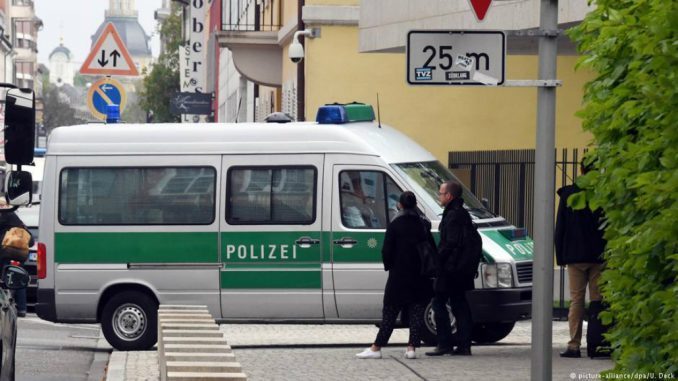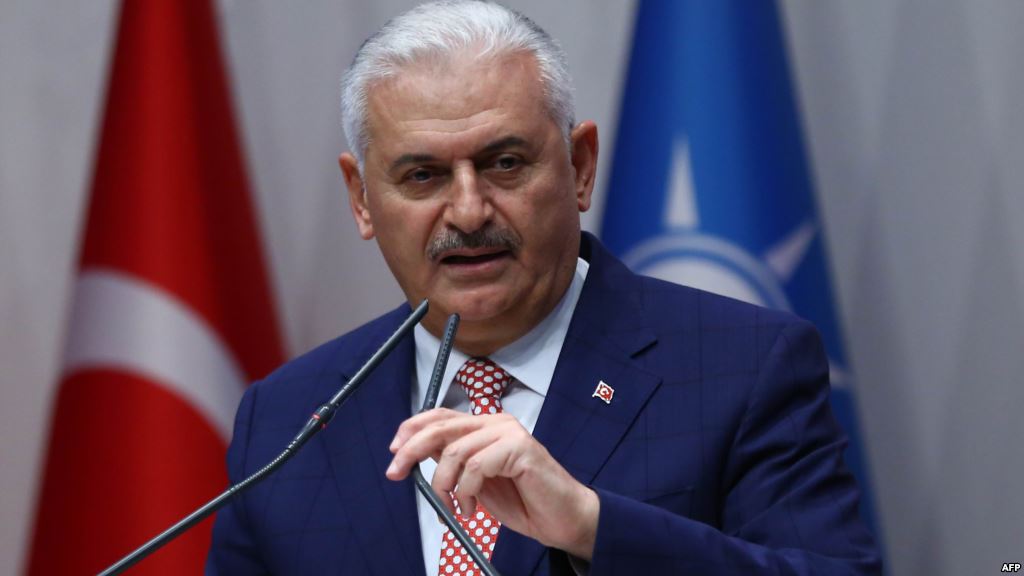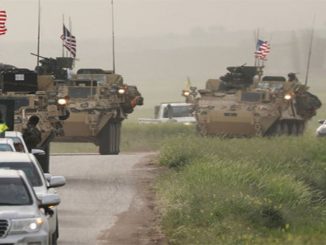
A German judge on Thursday issued an arrest warrant for an Iraqi formerly suspected of involvement in a series of explosions near Borussia Dortmund football team’s bus, saying he is instead suspected of being a member of the so-called “Islamic State” militant group operating in Iraq.
Three explosions went off as the Borussia Dortmund bus traveled to the club’s stadium for their Champions League match against AS Monaco on Tuesday, injuring Spanish defender Marc Bartra and delaying the fixture by a day.
Earlier, German federal prosecutors earlier announced they were unable to find any evidence linking the Islamist suspect to the triple blast that shook Germany on Tuesday evening.
“The investigations have so far resulted in no proof that the suspect had taken part in the attack,” the authorities said in statement, adding that he was a member of a “foreign terrorist organization,” and that an arrest warrant was being sought on that ground. He allegedly led a unit of 10 commandos who carried out kidnappings and executions.
The suspect, identified only as Abdul Beset A. due to German privacy laws, was set to appear in court later on Thursday. The judge must then decide whether or not to issue the warrant. Without it, prosecutors cannot hold him for longer than 24 hours.
The 26-year-old reportedly left Iraq and traveled to Turkey in March 2015 before continuing on to Germany, where he maintained his contacts with jihadists. He was apprehended in the city of Wuppertal, some 50 kilometers (30 miles) from Dortmund.
“Islamist claim” of responsibility for attack
On Tuesday evening, the bus carrying the Dortmund team to a Champions League match with AS Monaco was targeted by three explosions left on the road near the vehicle’s path. Spanish defender Marc Bartra was injured by flying shards of glass and required surgery, but no one was killed in the attack.
Authorities discovered two letters claiming responsibility for the attack. One, which was attributed to the far-left movement Antifa, was likely fake, a spokeswoman for Germany’s federal prosecutor said. The other, which said the attack was carried out “in the name of Allah, the merciful,” and blamed Chancellor Angela Merkel for “murdering Muslims,” in Syria, was being investigated by authorities.
A second suspect was also detained on Wednesday, but police later released him based on lack of evidence.
Security is an issue in campaigning for Germany’s federal election on Sept. 24, a tight battle in which Chancellor Angela Merkel is seeking a fourth term. In December, a Tunisian man killed 12 people when he ploughed a truck through a Berlin Christmas market.
Last year, Merkel lost support to the anti-immigration Alternative for Germany (AfD) party after opening the country’s doors to more than a million migrants. The AfD has since seen its ratings fall while the chancellor has regained some poise.
Germans fighting ISIS with the Kurdish militias
More than 200 people have traveled from Germany to fight alongside Kurdish militias battling the so-called “Islamic State” in Iraq and Syria since 2013, Germany’s interior ministry said last week.
Sixty-nine of the 204 fighters are German nationals, the ministry said in a written response to a query from Left Party parliamentarian Ulla Jelpke.
The official data does not cover those who traveled from Germany to join the peshmerga, the armed forces of Iraq’s autonomous Kurdish region.
The German government warns against travel to Iraq and Syria, but does not generally prosecute those fighting with Kurdish militias against ISIS or consider them a security threat, “as opposed to those who return from areas under the control of the Islamists in Syria/Iraq,” the ministry said.
Of those who went to fight alongside Kurdish militias, 102 have returned, including 43 German citizens. Many of those who fight alongside Kurdish militias are nationals of Turkey.
In a number of cases, those who returned were briefly monitored by security services on suspicion of ties to a terror organization. Left Party politician Jelpke blasted attempts to criminalize the volunteer fighters.
“When young people from Germany in full knowledge of the danger take it upon themselves to participate in the fight against the ‘Islamic State’ in Syria, then I have the greatest respect for that decision,” Jelpke said in a statement.
Among the volunteer fighters, three German nationals have been killed. One was killed in November last year in a Turkish airstrike on the northern Syrian town of Manbij after Kurdish forces forced control over it.
Hundreds of foreign fighters from the United States and Europe have joined the ranks of various Kurdish militias in Iraq and Syria, including the People’s Protection Units (YPG), the YPG’s women’s unit the YPJ, and Yezidi units around Sinjar in northern Iraq.



